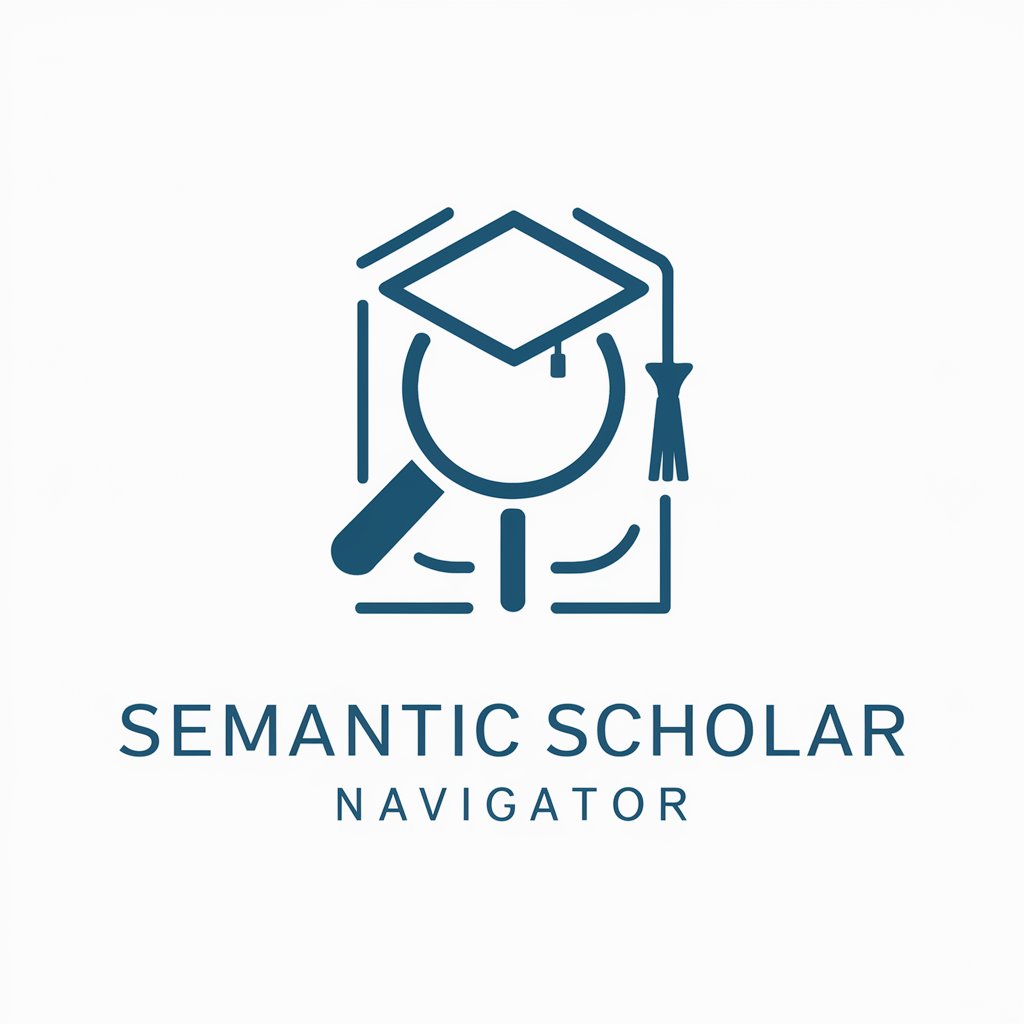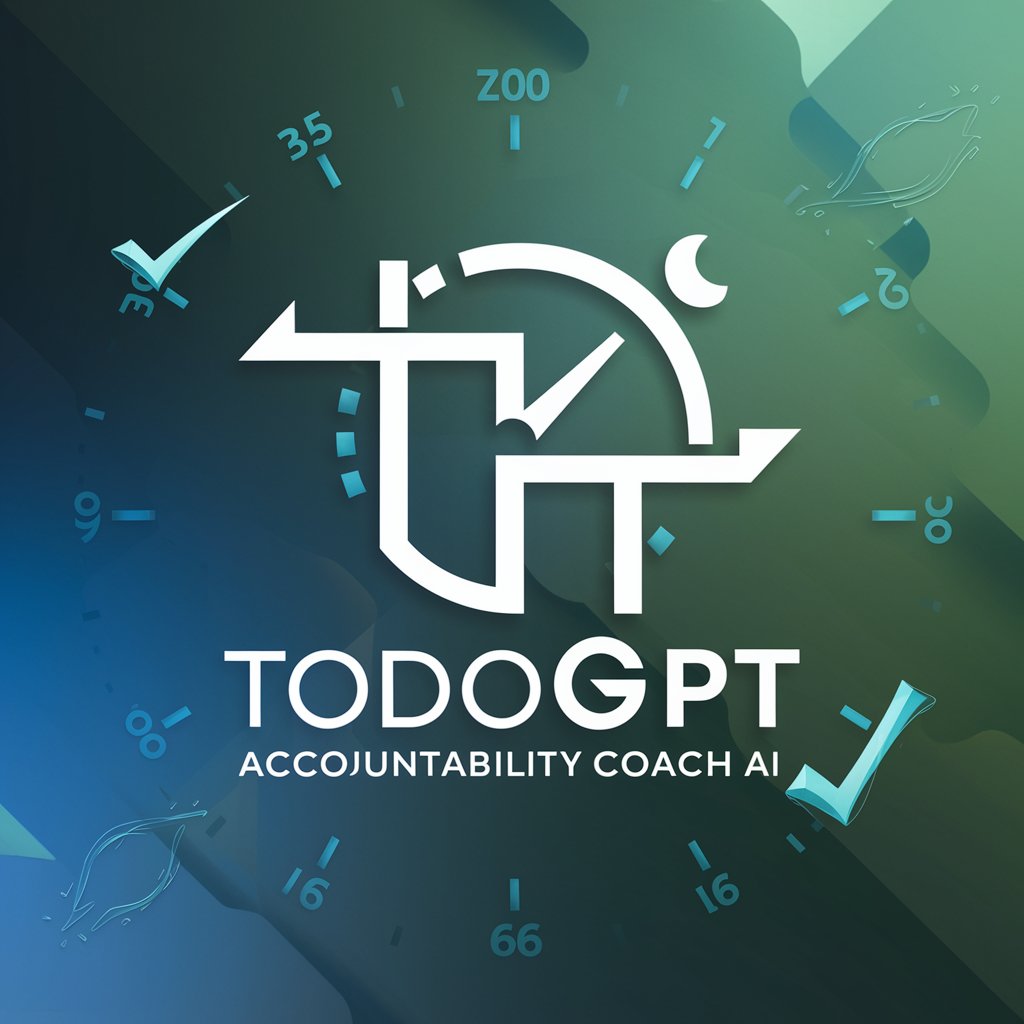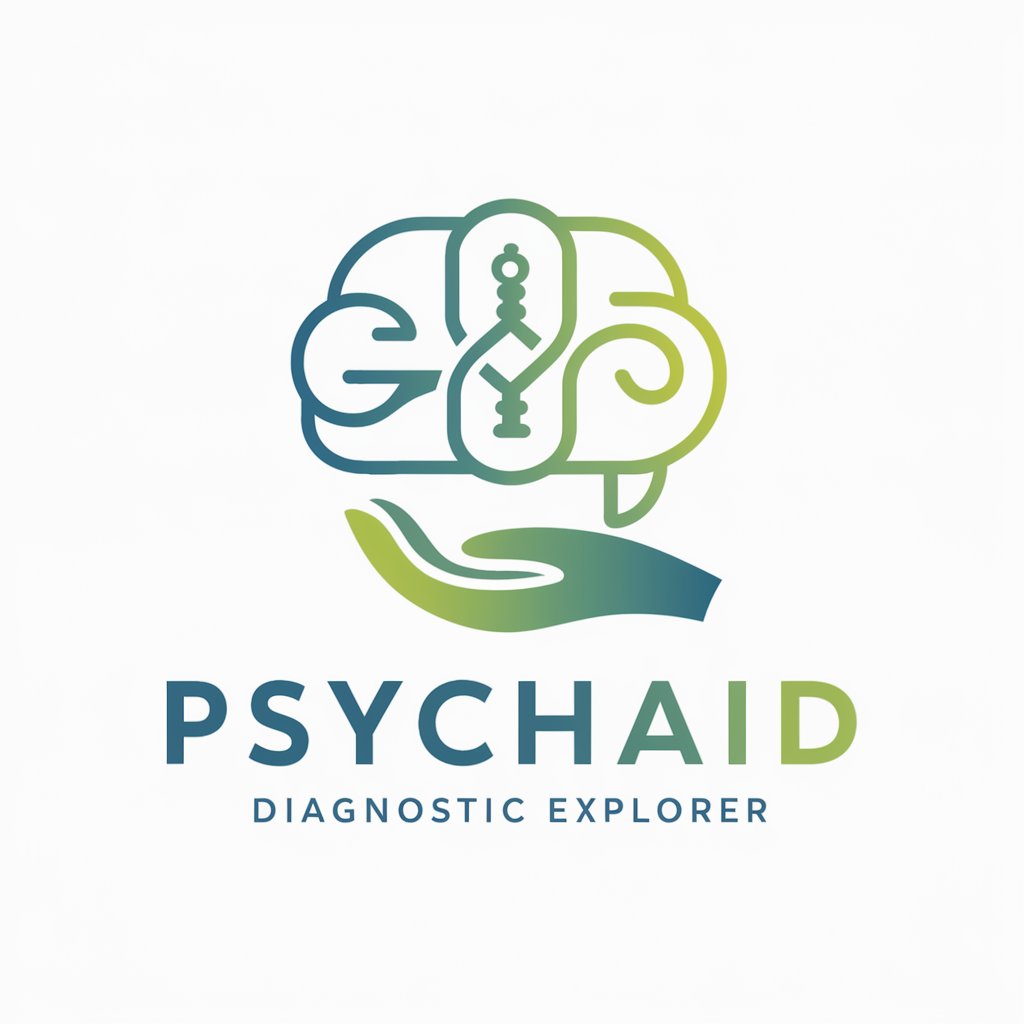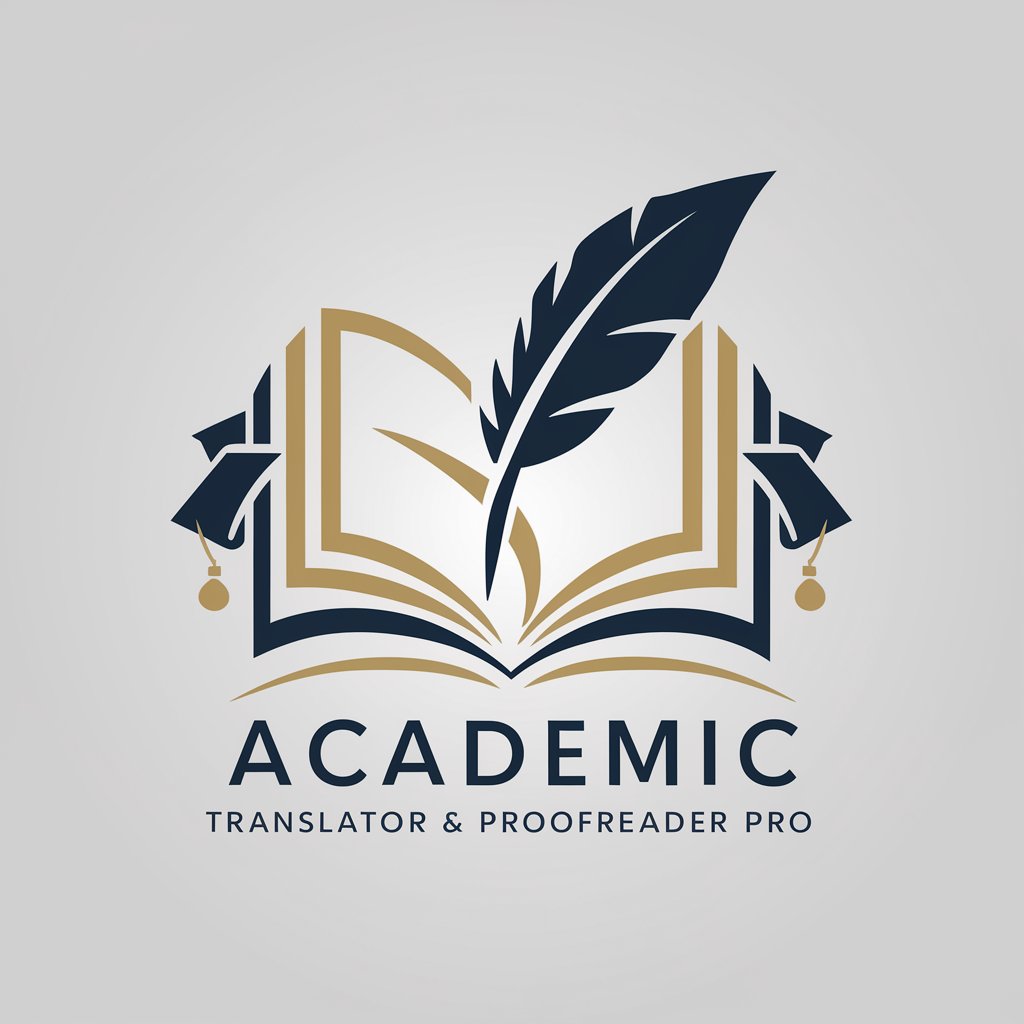Semantic Scholar GPT - AI-Powered Academic Search

Welcome to Semantic Scholar Navigator, your guide to academic research.
Empowering Research with AI-Driven Insights
Find recent papers on
Summarize the key findings of
Locate influential works by
Identify gaps in research related to
Get Embed Code
Semantic Scholar GPT: An Overview
Semantic Scholar GPT is a specialized version of the ChatGPT model, designed to assist with academic research queries by sourcing information exclusively from Semantic Scholar (semanticscholar.org). Its core functionality revolves around extracting and summarizing scholarly articles, helping users navigate the vast landscape of academic research. Unlike broader AI models, Semantic Scholar GPT focuses on delivering precise academic content, with an emphasis on accuracy and citation integrity. An example scenario could involve a user seeking the latest research on neural network optimization techniques. Semantic Scholar GPT would locate relevant papers, provide summaries, and cite sources, offering a streamlined approach to academic literature review. Powered by ChatGPT-4o。

Key Functions of Semantic Scholar GPT
Literature Summarization
Example
Summarizing a recent study on climate change impacts
Scenario
A student working on a thesis needs a concise overview of the latest findings in a specific area of climate science.
Source Identification and Citation
Example
Identifying seminal papers on quantum computing
Scenario
A researcher preparing a literature review requires authoritative sources on the development of quantum computing.
Data Extraction from Papers
Example
Extracting statistical data from a study on vaccine efficacy
Scenario
A public health official needs specific data points from various studies to inform policy decisions.
Target User Groups for Semantic Scholar GPT
Academic Researchers
Professionals and students in academic institutions benefit from streamlined access to relevant literature, aiding in research and publication.
Industry Experts
Professionals in various industries can stay abreast of the latest research developments in their field, facilitating informed decision-making and innovation.

Guidelines for Using Semantic Scholar GPT
Start with a Free Trial
Visit yeschat.ai to begin using Semantic Scholar GPT with a free trial, no login or ChatGPT Plus subscription required.
Define Your Research Question
Clearly articulate your academic research question or topic to ensure focused and relevant search results.
Use Specific Keywords
Employ precise keywords or phrases related to your research area for more accurate and efficient search results.
Review and Analyze Results
Carefully examine the provided summaries and data from academic papers to extract valuable insights.
Refine Your Search
If needed, refine your query based on initial results to hone in on the most pertinent academic content.
Try other advanced and practical GPTs
NHIGPT
Enlightening Insights Powered by AI

Elven Guide
Empowering Blockchain Innovations with AI

TodoGPT
Elevate Productivity with AI-Powered Guidance

Dr Snuggle Yuung - Therapist
Nurturing AI for Emotional Well-being

Excel Master
AI-Powered Excel Assistance

Klafrax - REALITY VENTURES
Bridging Worlds with Cosmic Whimsy

PsychAid: Diagnostic Explorer
Empowering Mental Health Diagnosis with AI

Amazonian Coach
Smart Shopping with AI

Academic Translator & Proofreader Pro
Elevating Academic Excellence with AI

Avalanche Expert
Unleashing Avalanche Insights with AI

Gastronomy Maestro
Revolutionizing Your Culinary Experience with AI

Starfleet Interface
Explore the Universe with AI

Frequently Asked Questions about Semantic Scholar GPT
What types of academic content can Semantic Scholar GPT find?
Semantic Scholar GPT can locate a wide range of academic content, including research papers, journal articles, conference papers, and theses, across various disciplines.
How does Semantic Scholar GPT differ from other academic search engines?
Unlike standard search engines, Semantic Scholar GPT focuses on deep, AI-driven analysis of academic papers, providing more contextually relevant and refined search results.
Can Semantic Scholar GPT assist in literature review for academic research?
Absolutely, Semantic Scholar GPT is adept at aiding in literature reviews by quickly identifying key papers and summarizing their core findings and methodologies.
Is Semantic Scholar GPT suitable for finding recent scientific breakthroughs?
Yes, Semantic Scholar GPT can effectively locate recent scientific breakthroughs by accessing the latest academic publications in various scientific fields.
How can one ensure the best results when using Semantic Scholar GPT?
For optimal results, use specific, well-defined queries, regularly refine your search based on initial outcomes, and leverage the summaries to understand the context of papers.
